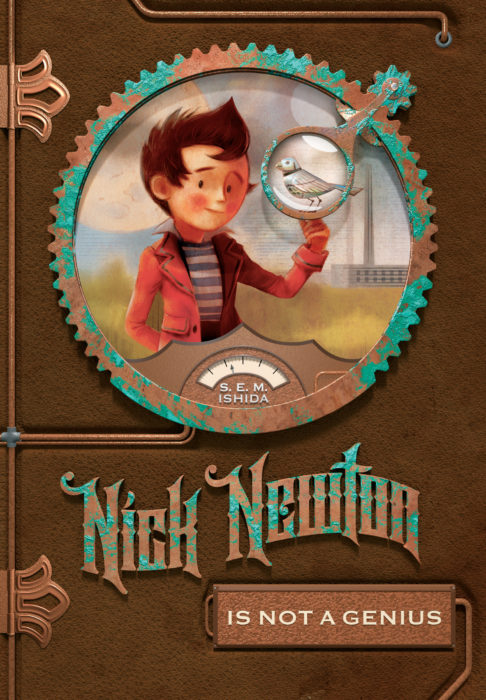Freeing Ourselves from Tropes
The Merriam-Webster Dictionary defines “trope” as “a common or overused theme or device: cliché.”
Tropes are everywhere, establishing themselves into our cultures and stories over time, and they aren’t necessarily bad. Although we might get tired of certain recurring story elements, as Ecclesiastes 1:9 states, “There is no new thing under the sun.”
This week we feature S. E. M. Ishida and her novel Nick Newton is Not a Genius in Lorehaven Book Clubs. Stop by the flagship book club on Facebook to learn more about this story.
Subscribe to Lorehaven Magazine for free to download our new summer 2018 issue.
And as one of my writing professors remarked, readers want the same—but different.
Tropes can be useful, like story shorthand. If I see a book cover with a lady in a dress and a bonnet surrounded by flowers, I’m going to guess it’s romance. If I see a book cover with an armored figure facing a dragon, I’m going to guess it’s high fantasy. We expect the lead characters to fall in love by the end of a romance, and we accept the existence of mythical creatures in a fantasy novel.
Tropes also go beyond just giving us a means of categorizing existing stories. Tropes can be springboards for discovering new adventures. After all, tropes can be broken. My story, Nick Newton Is Not a Genius, works in part because we already have so many stories about child geniuses. I think that the prevalence of the child genius trope helps boost the appeal of a character like Nick.

“Children and grown-ups alike will be charmed by this gentle, creative tale.”
— Lorehaven Magazine
However, tropes have a more dangerous counterpart. When traits are repeatedly applied to characters or real people, whether or not these groups actually have those traits, we get stereotypes.
Stories have the power to impact our perceptions about people’s gender, ethnicity, and more. In Jesus’ parable in Luke 10, he goes against the grain of a prevalent stereotype from his own culture. He features a Samaritan in a positive light, and the expression “good Samaritan” still resonates with us today.
The Scripture narrative includes other accounts in which God acts contrary to human expectations. Paul writes:
But God hath chosen the foolish things of the world to confound the wise; and God hath chosen the weak things of the world to confound the things which are mighty.1
Moses says, “I am not eloquent…I am slow of speech, and of a slow tongue” (Exodus 4:10). I find it particularly amusing that Moses says this after God performs two miracles before his own eyes. And yet, Moses was the same man who “stretched out his hand over the sea; and the Lord caused the sea to go back by a strong east wind all that night, and made the sea dry land, and the waters were divided” (Exodus 14:21).
When going to find the new king, Samuel looks at seven of Jesse’s sons, but the Lord hasn’t chosen any of them. Rather, he chose David, the youngest, who was away taking care of the sheep. God says, “Look not on his countenance, or on the height of his stature … for the Lord seeth not as man seeth; for man looketh on the outward appearance, but the Lord looketh on the heart” (I Samuel 16:7).
Jesus himself didn’t even match people’s expectations. When he rode into Jerusalem, his audience cried, “Blessed is the King of Israel that cometh in the name of the Lord” (John 12:13). Jesus saved the world—but not in a way that even his closest followers had anticipated.
Present-day Christian culture comes with its own tropes and stereotypes, and speculative fiction isn’t always expected, understood, or embraced in Christian social circles. But I am thankful that we don’t serve a God who demands cookie cutter characters or predictable plots. If you ever feel like a freak, maybe, by our culture’s standards, you are. But just remember—you’re in good company. “Be of good courage, and he shall strengthen your heart, all ye that hope in the Lord” (Psalm 31:24).
“Children and grown-ups alike will be charmed by this gentle, creative tale.”
— Lorehaven MagazineExplore S. E. M. Ishida’s novel Nick Newton is Not a Genius in the Lorehaven Library.
Read our full review exclusively from the summer 2018 issue of Lorehaven Magazine!
- I Corinthians 1:27. ↩





































Thing I found on pinterest about five dualities that can be good themes besides your trope-laden and beat-to-death good vs evil:
1. Freedom vs Safety
2. Success vs Selflessness (pretty much anything survivalist)
3. Progress vs Preservation
4. Individuality vs Community (touched on this one a few posts ago)
5. Privacy vs Transparency (also ties into the freedom v safety)
Maybe Innocence vs. Tragedy/Awareness/etc. can be another one. This would address individual character growth more than a conflict that affects all of society (though it could still be good for a char struggling with those society based conflicts). Basically a char faces something that shakes their world and they have to decide who and what they want to be as a result, and cope with the fact that they can’t entirely control who they become in the wake of their challenges.
I’m not sure that’s significantly different than a bildungsroman, or some subgenre of bildungsroman (fancy word of the day!)